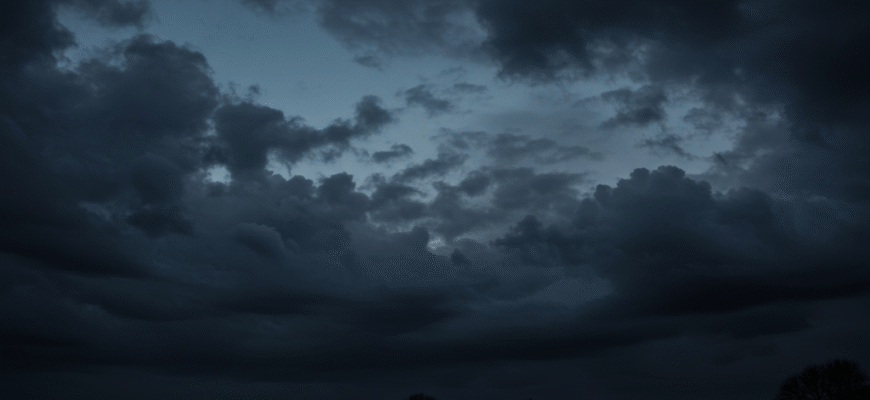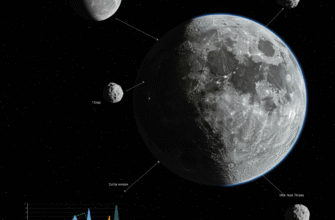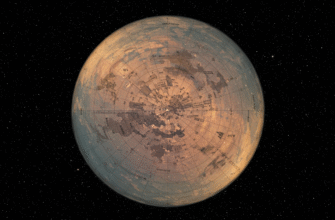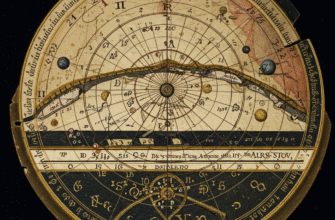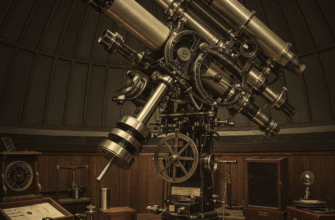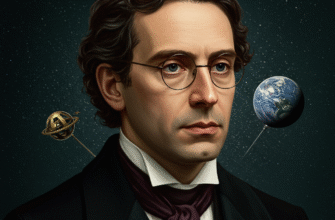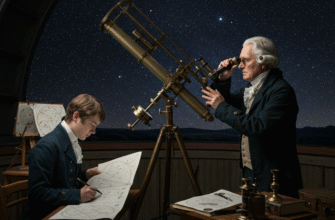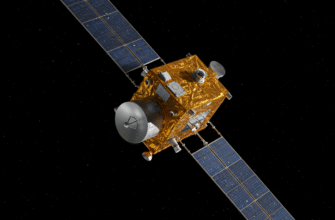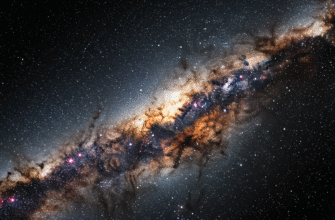The velvet curtain of an Elizabethan night was not merely a void sprinkled with distant lights; for the people living beneath it, the heavens pulsed with meaning, a vast, illuminated manuscript foreshadowing the fates of kings and kingdoms alike. In an era perched precariously between ancient mysticism and the dawn of scientific reason, the celestial sphere was an arena of divine communication, its anomalies and regularities scrutinized for portents. William Shakespeare, a playwright deeply attuned to the intellectual and spiritual currents of his time, masterfully wove this cosmic consciousness into the fabric of his dramas, transforming popular belief into profound theatrical art. His plays are replete with comets, eclipses, and disturbed stars, each serving as more than mere atmospheric dressing; they are reflections of a worldview where the destiny of humanity was inextricably linked to the dance of the cosmos.
The Heavens Speak: Elizabethan Cosmic Views
To grasp the significance of celestial omens in Shakespeare’s work, one must first step into the Elizabethan mindset regarding the universe. The dominant model was still largely Ptolemaic, envisioning a geocentric cosmos where the Earth sat at the center, orbited by the moon, sun, planets, and the sphere of fixed stars. Beyond this lay the divine. This ordered universe was thought to operate according to the principle of the Great Chain of Being, a hierarchical structure linking God, angels, humans, animals, plants, and minerals. Any disruption in one part of this chain, particularly at the human or celestial level, was believed to ripple throughout the entire system. Consequently, events in the heavens – the macrocosm – were seen as direct indicators or influences on events on Earth, the microcosm.
Astrology was not a fringe practice but a respected, if sometimes debated, field of study. Almanacs, filled with astrological predictions based on planetary alignments and celestial events, were immensely popular, consulted by people from all walks of life. Figures like John Dee, Queen Elizabeth I’s own astrologer and advisor, exemplified the high regard in which such knowledge could be held. The appearance of a comet, an eclipse, or unusual stellar activity was rarely dismissed as a mere natural phenomenon. Instead, it was often interpreted as a divine warning, a sign of impending upheaval, the death of a great leader, or the onset of war or plague. This belief system provided a framework for understanding a world that often seemed chaotic and unpredictable, offering a sense of order and divine oversight, however ominous its messages might sometimes be.
Elizabethans widely believed in a geocentric universe where the Earth was the center, and celestial events directly impacted human lives. Astrology was considered a legitimate science, and almanacs predicting events based on planetary positions were bestsellers. This worldview saw a profound interconnectedness between the heavens and earthly affairs, with the macrocosm of the sky directly influencing the microcosm of human existence.
Shakespeare’s Stage: A Mirror to the Skies
Shakespeare, ever the astute observer of human nature and societal beliefs, did not simply ignore this pervasive cosmic anxiety; he embraced it. His stage became a realm where the pronouncements of the heavens were given voice and dramatic form. The celestial omens in his plays are not tacked on for sensationalism but are integral to plot, character, and theme. They resonate with the lived experience and expectations of his audience, who would have readily understood the dire implications of a blood-red moon or a star acting erratically. By incorporating these elements, Shakespeare anchored his narratives in the familiar belief systems of his day, lending an air of authenticity and urgency to the unfolding drama. These heavenly signs often function as a chorus, commenting on the action, heightening tension, and underscoring the gravity of human choices.
When Stars Align (or Misalign): Portents in Action
Several of Shakespeare’s most famous plays vividly illustrate this use of celestial omens.
Julius Caesar is perhaps the most explicit in its depiction of heavenly warnings. Prior to Caesar’s assassination, the play is saturated with reports of unnatural occurrences. Casca describes a terrifying night: “A common slave… Held up his left hand, which did flame and burn / Like twenty torches join’d, and yet his hand, / Not sensible of fire, remain’d unscorch’d.” He speaks of lions in the Capitol, men all in fire walking the streets, and an owl hooting at noon. Calphurnia, Caesar’s wife, dreams of his statue spouting blood and is terrified by reports that “Fierce fiery warriors fought upon the clouds… Which drizzled blood upon the Capitol.” Her famous line, “When beggars die, there are no comets seen; / The heavens themselves blaze forth the death of princes,” encapsulates the Elizabethan belief that the cosmos mourns or signals the fall of the great. These omens create an almost unbearable atmosphere of impending doom, suggesting that Caesar’s murder is an event of such magnitude that it disrupts the very order of nature.
In Hamlet, the appearance of the Ghost of Hamlet’s father is itself a disruption of the natural order, and it is framed by celestial unease. Horatio, a scholar, notes the eerie atmosphere preceding the Ghost’s sighting and links it to historical omens. He recalls that just before Julius Caesar fell, “the sheeted dead / Did squeak and gibber in the Roman streets,” and speaks of “stars with trains of fire and dews of blood, / Disasters in the sun.” While witnessing the Ghost, Marcellus asks Horatio if it isn’t like the King, to which Bernardo replies, “As thou art to thyself: / Such was the very armour he had on / When he the ambitious Norway combated; / So frown’d he once, when, in an angry parle, / He smote the sledded Polacks on the ice. / ‘Tis strange.” Horatio then connects this apparition to cosmic disturbances: “A mote it is to trouble the mind’s eye. / In the most high and palmy state of Rome, / A little ere the mightiest Julius fell, / The graves stood tenantless and the sheeted dead / Did squeak and gibber in the Roman streets… And the moist star / Upon whose influence Neptune’s empire stands / Was sick almost to doomsday with eclipse.” The “moist star” (the moon) being “sick almost to doomsday” suggests a profound cosmic malaise mirroring the rotten state of Denmark.
King Lear features one of the most direct articulations of astrological influence on human affairs. The Duke of Gloucester, witnessing the disintegration of his family and the kingdom, laments: “These late eclipses in the sun and moon portend no good to us: though the wisdom of nature can reason it thus and thus, yet nature finds itself scourged by the sequent effects: love cools, friendship falls off, brothers divide; in cities, mutinies; in countries, discord; in palaces, treason; and the bond cracked ‘twixt son and father.” This speech is a catalogue of societal breakdown directly attributed to celestial phenomena. While his illegitimate son, Edmund, cynically dismisses such beliefs as “the excellent foppery of the world,” blaming human failings on cosmic scapegoats, Gloucester’s anxieties would have resonated powerfully with an audience accustomed to looking skyward for explanations of earthly chaos. The play’s devastating trajectory seems to validate Gloucester’s fears, as the natural and social orders collapse in tandem.
The tragic events of Macbeth are similarly cloaked in an atmosphere of unnatural, cosmically endorsed horror. The night of King Duncan’s murder is described by Lennox as “unruly”: “The night has been unruly: where we lay, / Our chimneys were blown down; and, as they say, / Lamentings heard i’ the air; strange screams of death, / And prophesying with accents terrible / Of dire combustion and confused events / New hatch’d to the woeful time: the obscure bird / Clamour’d the livelong night: some say, the earth / Was feverous and did shake.” More explicitly, Ross tells an Old Man of the unnatural darkness that has shrouded the land even in daytime: “By the clock, ’tis day, / And yet dark night strangles the travelling lamp: / Is’t night’s predominance, or the day’s shame, / That darkness does the face of earth entomb, / When living light should kiss it?” He also recounts other unnatural events, such as Duncan’s horses turning wild and eating each other, and “A falcon, tow’ring in her pride of place, / Was by a mousing owl hawked at and killed.” These disturbances in the natural world are direct reflections of the unnatural act of regicide, a profound violation of the divinely ordained order.
Beyond Superstition: The Dramatic Power of Omens
While it is easy to dismiss these celestial portents as mere reflections of Elizabethan superstition, for Shakespeare, they were potent dramatic tools that served multiple functions:
- Foreshadowing: The omens act as clear signals to the audience, building suspense and a sense of tragic inevitability. The audience, steeped in these beliefs, would understand the dire warnings long before the characters on stage fully grasp their implications.
- Characterization: A character’s reaction to omens reveals much about their worldview. Caesar’s dismissal of the warnings highlights his hubris, while Gloucester’s despair underscores his vulnerability and traditional mindset. Edmund’s cynicism, conversely, marks him as a modern, Machiavellian figure.
- Thematic Resonance: The disruption in the heavens often mirrors and amplifies the play’s central themes – the breakdown of order, the consequences of ambition, the fragility of the social fabric, and the presence (or absence) of divine justice. The cosmic disorder underscores the moral and political chaos unfolding on Earth.
- Audience Engagement: By tapping into prevailing anxieties and beliefs about fate, destiny, and supernatural influence, Shakespeare forged a powerful connection with his audience. The shared understanding of celestial language created a more immersive and emotionally resonant theatrical experience.
The Fading Stars of Prophecy
It is important to note that even within Shakespeare’s plays, and indeed in Elizabethan society itself, there were stirrings of skepticism. Characters like Edmund in King Lear, with his rationalist dismissal of astrological determinism (“This is the excellent foppery of the world, that, when we are sick in fortune—often the surfeit of our own behavior—we make guilty of our disasters the sun, the moon, and the stars”), represent an emerging modern consciousness. Shakespeare, with his characteristic complexity, often presents both belief and skepticism, allowing for a richer, more nuanced exploration of human agency versus fate.
However, the dramatic impact of these celestial omens remains undiminished. They articulate a profound human desire to find meaning in the universe, to see patterns and portents in the face of uncertainty. Whether one believed literally in the influence of comets and eclipses or not, their symbolic power to convey doom, disorder, and the gravity of human actions was, and remains, undeniable. Shakespeare’s genius lies in his ability to take the raw material of contemporary belief and forge it into enduring art. The heavens in his plays are not silent, indifferent expanses; they are vocal, agitated, and deeply involved in the human drama unfolding below, reflecting a world where every comet’s tail and every darkened sun was a character in its own right, speaking a language all too familiar to the Elizabethan soul.

